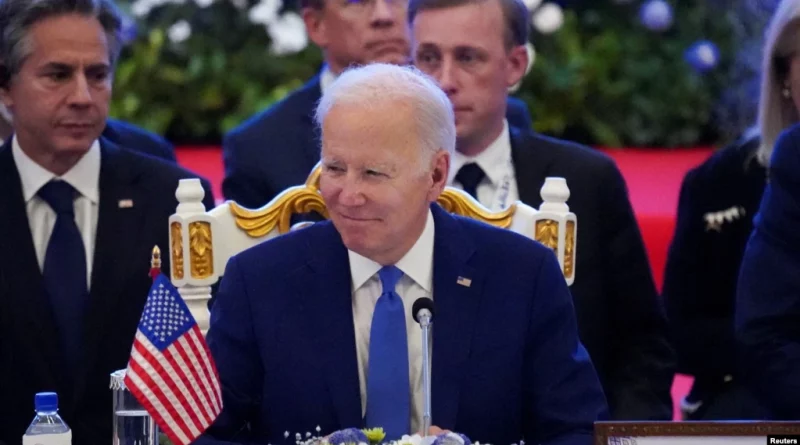Biden: The U.S., Japan, and South Korea are more united than ever on North Korea
Biden: The U.S., Japan, and South Korea are more united than ever on North Korea
The United States, Japan and South Korea are “more united than ever” on North Korea’s “provocative behavior,” President Joe Biden said Sunday, while the president’s national security adviser pledged a joint response if Pyongyang conducts a seventh nuclear test.
Speaking in Cambodia after a trilateral meeting with Japanese Prime Minister Fumio Kishida and South Korean President Yoon Suk-El, Biden called their countries “crucial allies” who share U.S. concerns about North Korea’s missile tests.
“Over the years, our countries have engaged in a trilateral cooperation driven by a common concern – the nuclear and missile threat to our nations posed by North Korea,” Biden said. – North Korea continues to be provocative. This partnership is more important today than ever.”
The three leaders issued a joint statement welcoming the “unprecedented level of trilateral coordination” they have achieved and pledged to forge even closer ties, especially on security. Biden also emphasized the “unbreakable” U.S. commitment to protecting both allies, the statement said.
Yoon Suk-El said North Korea’s recent provocations demonstrated the nature of its regime “directed against humanity.” Kishida called Pyongyang’s actions “unprecedented.”
“This trilateral summit is timely because we expect more provocations,” Kishida said in his opening remarks at the trilateral meeting.
“I look forward to increased coordination between the United States, South Korea and Japan to respond decisively to North Korea’s actions,” he added.
Jake Sullivan, the president’s national security adviser, told reporters aboard the presidential flight that the three leaders plan to give a coordinated response if North Korea conducts a seventh nuclear test, but did not go into detail.
“We can expect a trilateral response well coordinated by the three countries,” Sullivan said, adding that it could include economic and diplomatic measures as well as security steps.
In their joint statement, the three leaders strongly condemned the unprecedented number of North Korean ballistic missile launches this year, saying they pose a “serious threat” to peace and security in the region.
Before the meeting, Biden said the three leaders would discuss other issues, including strengthening supply chains and economic resilience, maintaining peace and stability in the Taiwan Strait area and expanding coordinated support for Ukraine.
The White House reported that Biden also held a bilateral meeting with Fumio Kishida. The president reiterated the U.S. “unbreakable commitment” to defend Japan after Pyongyang’s recent “destabilizing ballistic missile tests,” including the Oct. 3 missile launch that flew over Japan.
U.S. and Japanese leaders “reaffirmed their determination to maintain peace and stability in the Taiwan Strait and to continue to cost Russia its unprovoked war in Ukraine,” the White House said in a statement.
On Monday, Biden will meet with the leaders of China and Indonesia on the Indonesian island of Bali, where he has arrived for the G-20 summit. The White House said the president would give a news conference after the meetings.
